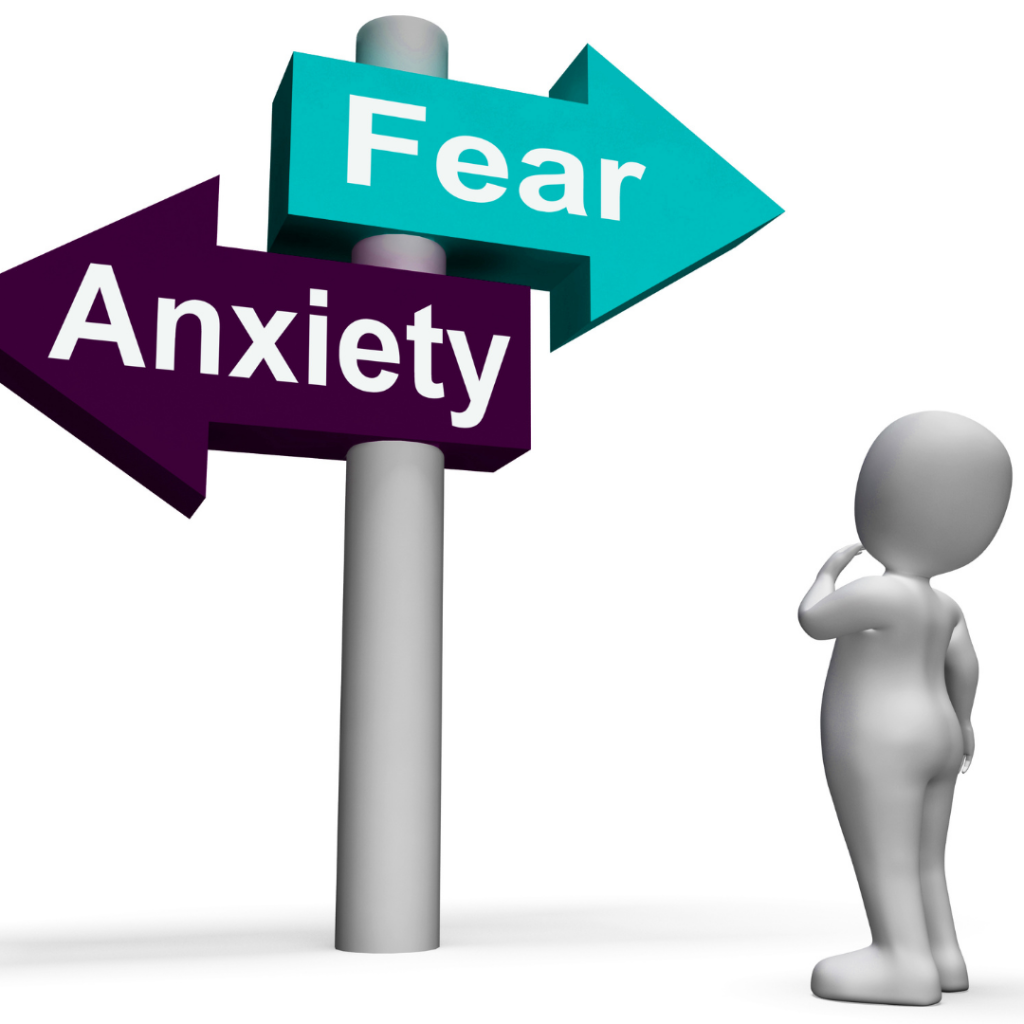
Posts may contain affiliate links. As an Amazon Associate, we earn from qualifying purchases and collect a small commission at no cost to you. This helps my blog to keep going. Thank you! For more info, read my disclosure policy.
How anxiety can impact physical and mental well-being
Disclaimer: I am not a doctor, a professional, or a therapist for anxiety disorders, but I do give helpful information and resources to allow people with an anxiety disorder to learn about anxiety and find possible resources that can help them with the disorder and share with someone you know who has a disorder.
Anxiety disorders are common but can disrupt your life! Nearly 40 million people in the United States (18%) experience an anxiety disorder. They are highly treatable, but you need to ask for help.
Unfortunately, only 36.9% of those dealing with anxiety get treatment, according to the Anxiety & Depression Association of America (ADAA). Anxiety can affect your job, school and relationships, and home life.
Like other mental illnesses, anxiety disorders can cause physical symptoms, such as difficulty sleeping, appetite changes, and trouble concentrating. Anxiety also puts you at risk of other mental illnesses.
Generalized Anxiety Disorder (GAD) is characterized by persistent and excessive worry about a number of different things. People with GAD may see a worse conclusion and outcome and may be overly concerned about family, work, health, money, and other issues.
Chronic feelings of worry, fear, or dread aren’t common. They’re a sign you should seek professional help. People with GAD find it difficult to control their worries. When they are diagnosed they continue to worry for at least 6 months and have 3 or more symptoms.
This shows the difference between worry and GAD with the more limited time period. With treatment, people with GAD can function socially, and have meaningful lives, as well as being able to become employed.
Living through a pandemic and anxiety
We are almost 2 years into the pandemic and people are tired of COVID and how it affects their families, they are worried about how to approach the school year, and worry about what to do or listen to in order to protect their kids.
Parents gave up their jobs to be able to stay home and teach their kids, creating more stress financially and seeing their kids falling behind academically creating stress and mental health problems for many families. The unknown of when life will get back to normal again and isolation has created widespread anxiety and depression.
I never experienced anxiety until the pandemic, when I felt isolated and I was not able to socialize with family and friends. That is such an important part of my life. You feel like you have been stripped of your normal life and are not sure if it will seem normal again, as we knew it.
I would do a lot of weeding in the backyard to feel some sense of normalcy and take the dog for walks. Going to the grocery store was the highlight of my day at times.
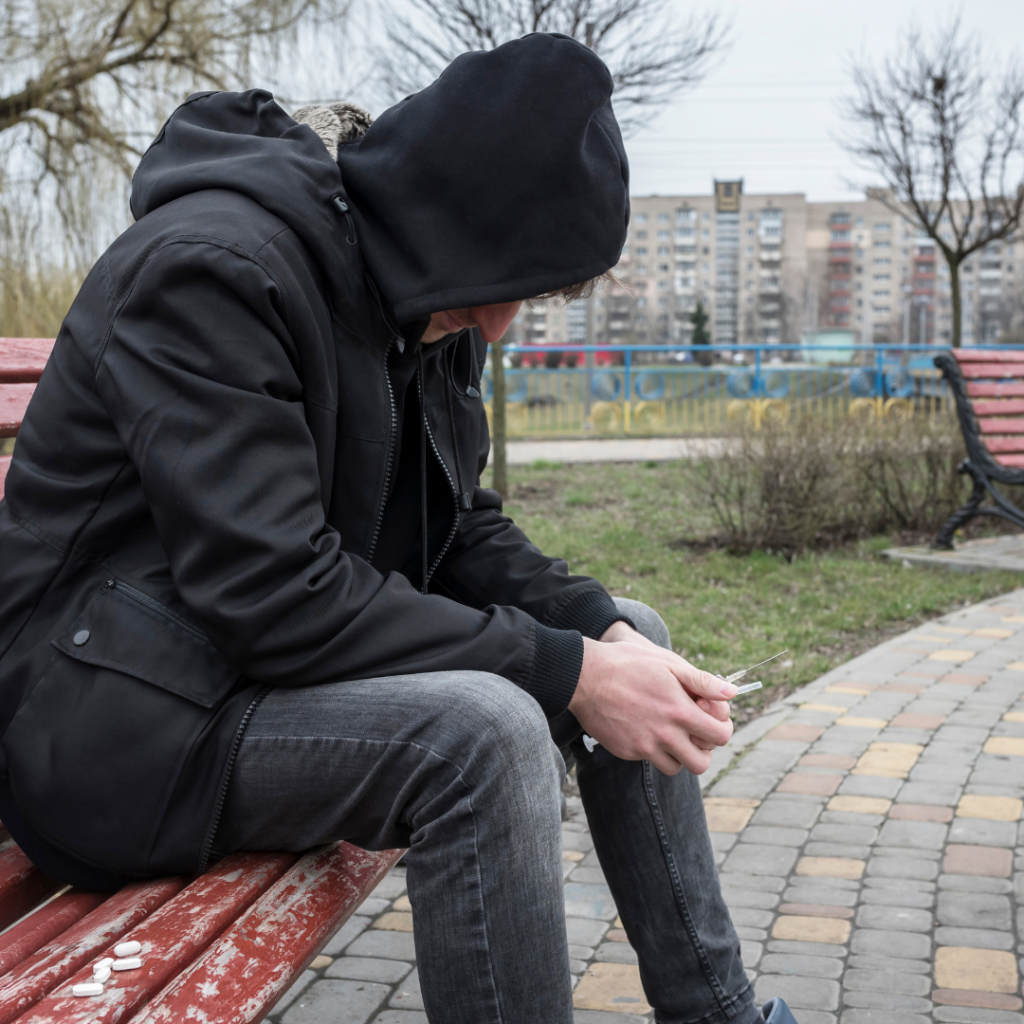
Addiction and anxiety
My older son is a recovering addict and he has gone through stages of anxiety, depression, and paranoia. When people are on drugs it can create an imbalance in the brain, and the brain cannot work normally without the drugs. It can take time for the imbalance to heal.
Much of the damage caused by drug use can be reversed when they get off the drugs. Certain drugs can increase the stress hormones in the brain triggering anxiety disorders.
He was checked into an evaluation hospital where they put him on several medications to balance his moods, paranoia, cravings and to see what damage was done. There were some side effects, so that is when they adjusted what he took.
It took several months to get the medication right, and after that, he seemed like my son again before he became an addict. He seemed calm and started seeing the positives in life.
If you know someone who seems to have changed and looks at life in a negative way, and it is someone you know and love, ask if they would be open to talking to a professional. Don’t ask them when they are on something as you probably won’t get a positive answer.
Wait until they are sober and not high and see how open they are, and back off for a while if they are not open to it at first.
It took my son years before he agreed to this. One thing you can learn is that addicts have to do things on their own time when they are ready.
You can plant the seed and might have to wait for it to grow. Being a parent of an addict takes lots of patience, love, and support.
Here are ways to deal with feeling anxious or stressed:
- Eat well-balanced meals. Do not skip any meals. Do keep healthful, energy-boosting snacks on hand.
- Do self-care – listen to music, socialize with friends, meditate, get a massage, or go for a walk. Stepping back from the problem helps clear your head
- Limit alcohol and caffeine, which can aggravate anxiety and trigger panic attacks.
- Do deep breathing exercises and meditation – Inhale and exhale slowly. Breathing and meditation techniques can manage anxiety and panic attacks when practiced regularly.
- Taking mini-breaks will help take your mind out of stressful moments and make you more productive, too.
- Get enough quality sleep on a regular basis. Adults should get seven hours of sleep each night.
- Exercise daily to help you feel good and maintain your health. You may also want to practice yoga, which incorporates both movement and mindfulness.
- Have a good laugh, as it goes a long way.
- Maintain a positive attitude. Make an effort to replace negative thoughts with positive ones.
- Volunteer or find another way to be active in your community, which creates a support network and gives you a break from everyday stress.
- Tell friends and family you’re feeling overwhelmed, and let them know how they can help you. Talk to a physician or therapist for professional help.
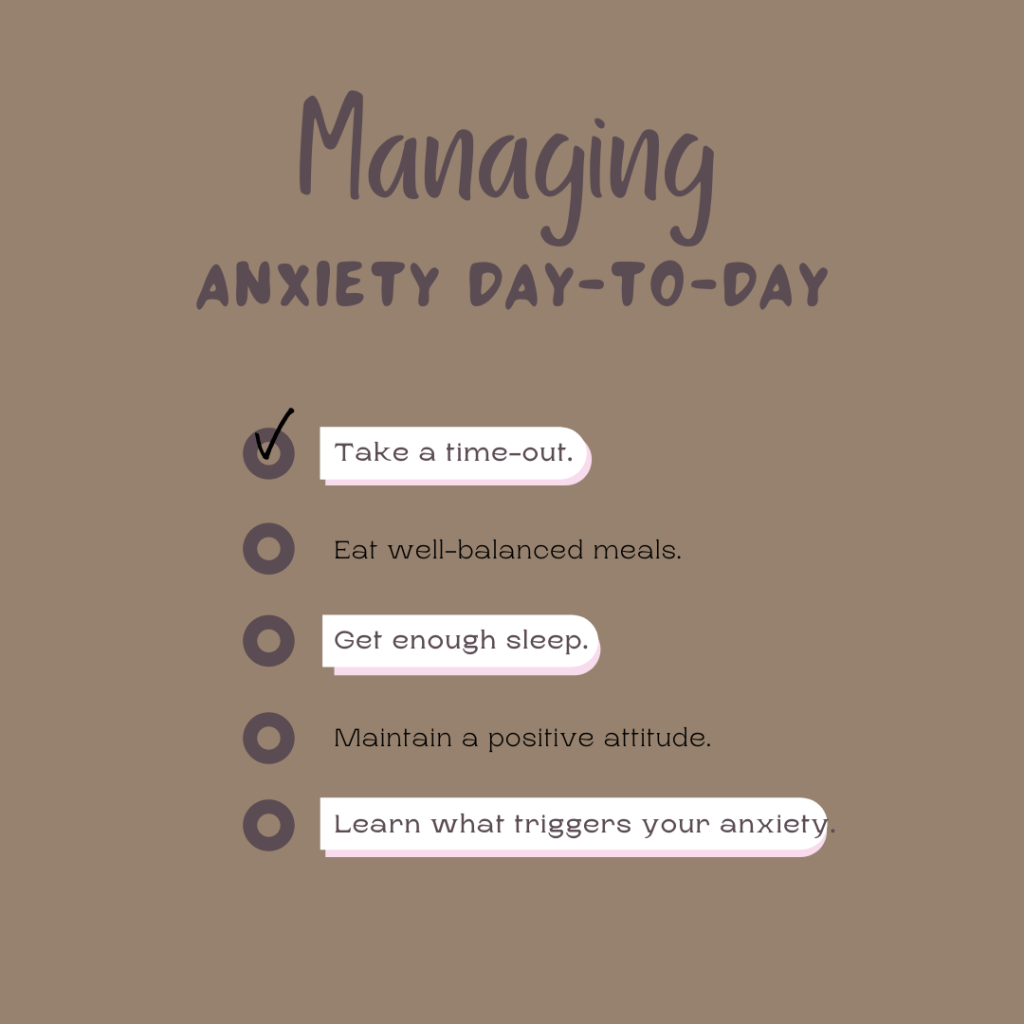
Fitness tips when you are living with anxiety
Research on anxiety and exercise shows that the psychological and physical benefits of exercise can also help improve mood and reduce anxiety.
For the biggest benefits of exercise, try to include a combination of moderate-intensity physical activity ( brisk walking) each week, and a vigorous-intensity activity (such as jogging or swimming laps), or a combination of the two.
- Set small daily goals and aim for daily consistency. It’s better to walk every day for around 10 minutes to help manage and prevent anxiety symptoms. Lots of scientific data suggest that frequency and shorter intervals are most important.
- Find a form of exercise you enjoy. Extroverted people often feel more comfortable in classes and group activities. People who are more introverted often prefer to do a solo routine.
- Many people find it’s more fun to exercise while listening to music or a podcast they enjoy.
- Find a friend, co-worker, neighbor, or family member to be your “exercise buddy.” It makes it easier to stay committed to your exercise routine.
- Check with your doctor first, when starting a new exercise program, and be sure to start at a slower beginner pace and work your way into the program to prevent injuries and where you feel comfortable. Don’t ever force your body to do what it doesn’t want to do!
Aerobic exercise
Aerobic exercise may be the fastest way to get stress-busting benefits as regular exercise helps to release natural endorphins that may reduce stress, helping you cope with stressful situations in a healthy manner.
Here are aerobic exercises you can do:
- Brisk walking – Go for a brisk walk. The Anxiety and Depression Association of America reports that some studies suggest that a 10-minute walk can be enough to restore calm.
- Jog or run – You can jog or run to release more anxiety if your bones can handle it. Make sure you have the right shoes that support and cushion your feet.
- Swimming – Being submerged in water can also be very soothing for some people and make for an even better reduction in stress.
- Dancing – Dancing can be a wonderful way to ease stress while getting a solid workout. It can also be a way to socialize which can create a sense of connectivity and support, allowing you to feel less anxious.
- Boxing – When you get really stressed or mad, do you ever want to hit something? If you have a boxing bag, boxing can be a wonderful way to burn off stress, anger, and other intense emotions.
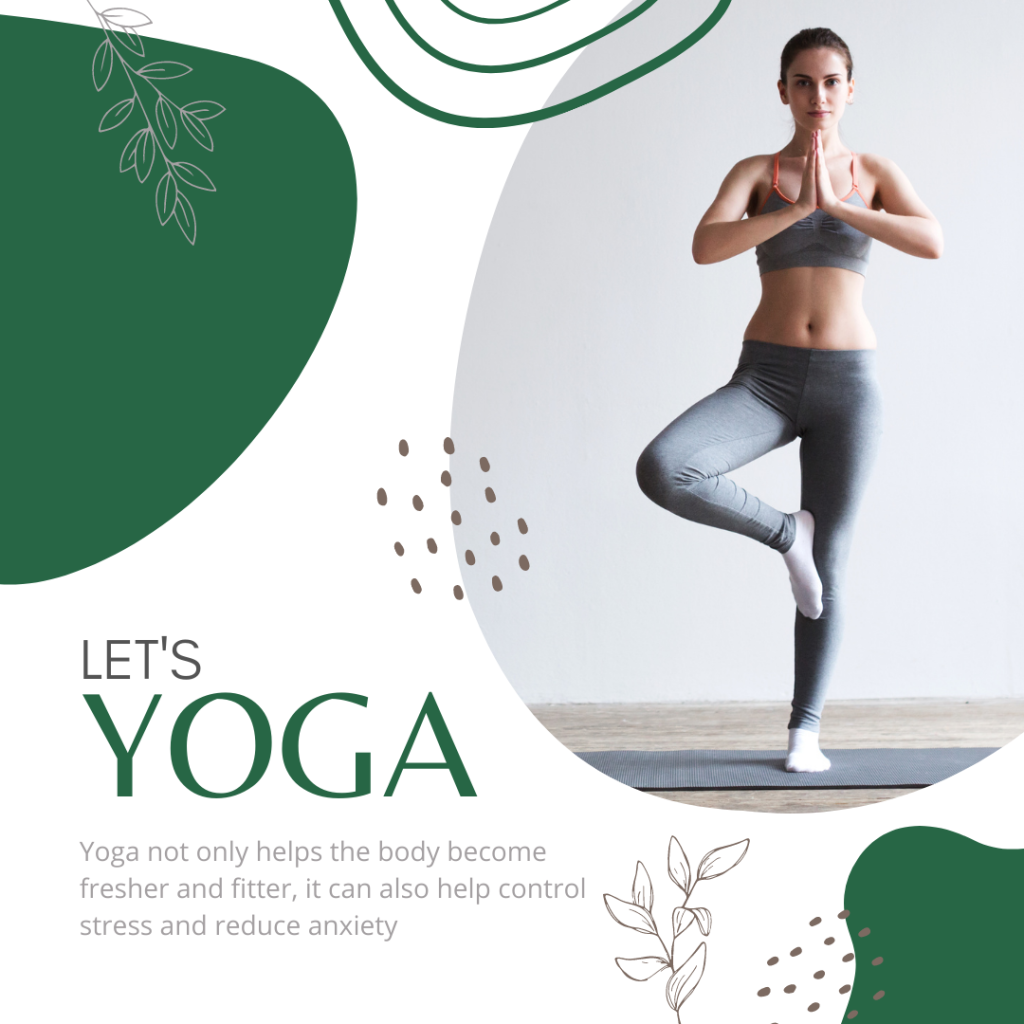
Yoga
Add yoga to your daily exercise routine. If you suffer from anxiety disorders, exercise can be an effective way to help you cope with them and reduce their negative impact on your life.
Yoga is a form of exercise that’s become a popular way for people to combine working out with controlled breathing, and is combined with meditation and core exercises to help you improve your mental and physical health.
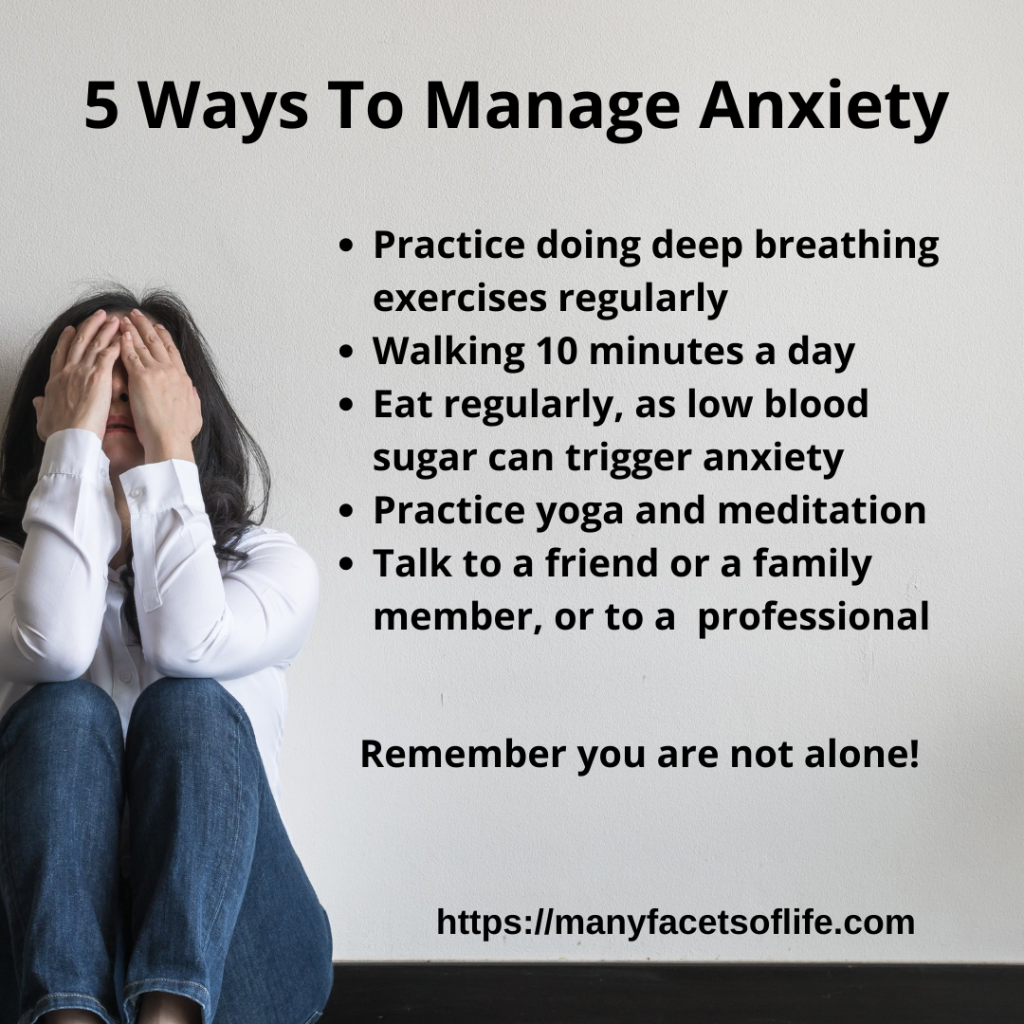
Tips for tackling anxiety and recognizing triggers
Stress is a daily fact of life, but constant stress can have a significant downside. Triggers continue to stress society, but we need to be aware of ways to manage these triggers that can become chronic and lead to health problems, such as depression, cardiovascular disease, and cancer.
Once you have identified the trigger, it is important to find ways to manage it otherwise it might leave you with the sensation of not being able to move physically. So, learn the triggers and their treatments!
If your symptoms of anxiety are severe and last longer than two weeks, talk to your doctor. They can refer you to a mental health professional who can provide the proper assessment and treatment. With professional help, you can get your symptoms under control and take back your life.
11 Common triggers and ways to cope
Relationship problems
Arguments or disagreements can be common in relationships, and common in creating an anxiety disorder. Anxiety can make you feel fearful. Talk with a therapist or other mental health expert to learn how to manage the feelings these conflicts cause.
Stress
Daily traffic jams, having a stressful job, getting your kids to school, worrying about being a perfect parent or wife, can cause anyone anxiety. Chronic stress is a prolonged and constant feeling of stress that can lead to worsening symptoms, as well as other health problems.
When stressed, some people skip meals, drink alcohol, or don’t get enough sleep which will also trigger or worsen the anxiety. You can learn coping mechanisms on preventing stress by going to a therapist or counselor.
Get rid of negative thoughts
Negative thoughts can take anyone down the wrong path. If you are frustrated or angry and upset, it can trigger anxiety. Try to find ways to have positive thinking or work with a therapist who can help you through this.
Medications
You might be taking prescribed medications and/or over-the-counter (OTC) drugs that may trigger anxiety symptoms. The active ingredients in these medications can make you not feel so well.
Those feelings can create a series of events in your mind and body that can bring additional symptoms of anxiety. Medications to be cautious of that can trigger anxiety, are birth control pills, medications you take for weight loss, and medications you take for a cough or congestion.
Don’t skip meals
When you don’t eat, your blood sugar can drop and trigger anxiety. Eat well-balanced meals of healthy food to get the vitamins and nutrients your body needs and to give you energy.
Have healthy snacks available if you are not able to eat 3 meals a day, to prevent low blood sugar and anxiety. Food can also affect your mood.
Exercise daily
If you suffer from anxiety disorders, exercise can be an effective way to help you cope with them and reduce their negative impact on your life. Yoga is a form of exercise that’s become a popular way for people to combine working out with controlled breathing, and is combined with meditation and core exercises to help you improve your mental and physical health.
Caffeine use
Many people enjoy their morning coffee or tea, but if you suffer from an anxiety disorder the caffeine might trigger it or make it worse. Try substituting decaffeinated drinks. When I have been to the stores I have found a wide variety of decaffeinated teas that taste great.
Sleep deprivation and anxiety
Sleep deprivation can worsen anxiety, creating a negative cycle that can become insomnia. Anxiety disorders are the most common mental health problem in the United States, and insufficient sleep tends to create negative implications for overall health.
Your doctor can recommend a mental health specialist, who can give you suggestions or medications on how to deal with insomnia and anxiety disorders. Here are a few ways to help break the cycle between anxiety and insomnia:
- Practice meditation
- Exercise regularly
- Play soft, relaxing music before bed
Financial worries
Being in debt and having unexpected bills can trigger anxiety. Here are some personal finance software options for 2021 that are recommended by balance.com such as Quicken and Mint, to create a plan and way to budget monthly and help keep you on course.
You could also seek help from a reputable financial advisor to ease your concern.
Major life transitions
Making a big move, changing jobs, getting married, a death, a divorce, buying a home, starting a family, and a severe illness, can be very stressful and could become a trigger for anxiety. Experiencing a major life transition can change our lives immediately as we go through different emotions and thoughts about how we deal with what is ahead.
Find a friend, family member, or a counselor or support system to discuss your feelings when it comes to death, a divorce, or a severe illness and find a way to move on in your life. Counseling can be so helpful in getting through a traumatic experience.
Accept, prepare and see the positives for a big move, a job change, getting married, starting a family, and buying a home. Be sure to exercise, get plenty of sleep, meditate, and do self-care, to make it a less stressful situation. Keep busy and focus on tasks that will help in your transition.
Attending social events
Many of us are uncomfortable when we go to an event with strangers where we have to indulge in small talk and interact. This can be a trigger for those prone to anxiety.
Try bringing a friend or family member to help you feel more comfortable or go to a therapist who can tell you what coping mechanisms can help make going to events more manageable.
“Anxiety happens when you think you have to figure out everything all at once. Breathe. You’re strong. You got this. Take it day by day.”
—Karen Salmansohn
Identify triggers
Start a journal
Write down when you notice anxiety coming on and record what you think might have led to the trigger. Be sure and write down anytime you are going through an anxiety attack for future reference.
I have found that writing things down helps you remember.
Work with a therapist or counselor
Many triggers can be hard to identify so work with a licensed and reputable therapist who is familiar with anxiety. They have been trained and should be able to help you figure this out.
Look at past experiences
Go to past experiences where something triggered your anxiety. If you are keeping a journal, go through it and see if you were in a similar situation currently and see what you did to cope with it.
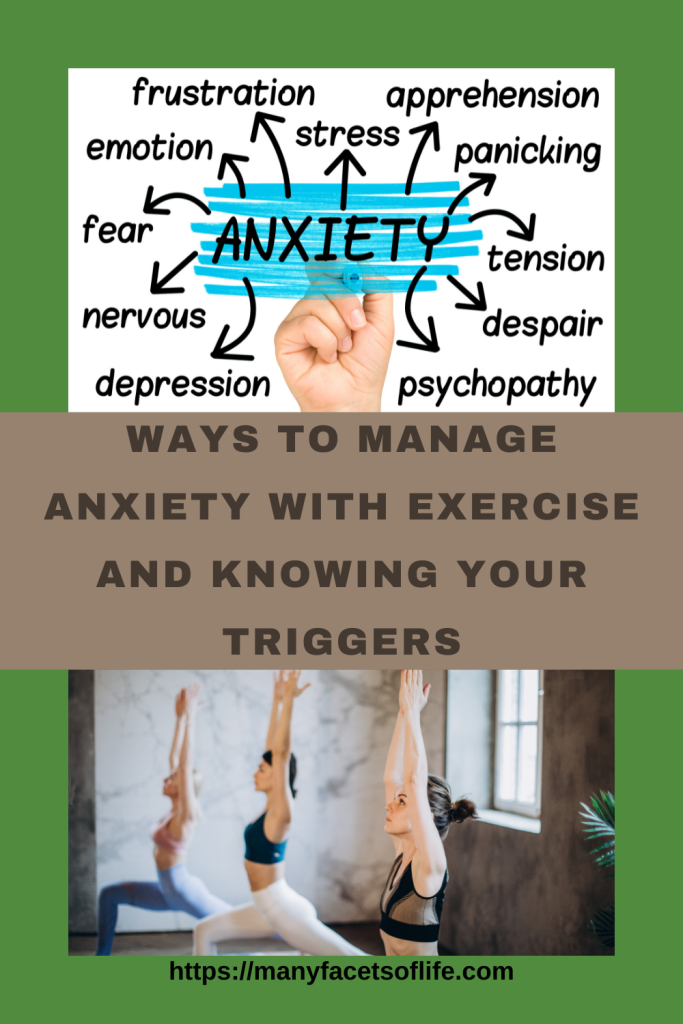
In closing
Disclaimer: I am not a doctor, a professional, or a therapist for anxiety disorders, but I do give helpful information and resources to allow people with an anxiety disorder to learn about anxiety and find possible resources that can help them with the disorder and share with someone you know who has a disorder.
I hope I have made you more aware of how anxiety has become a disorder for nearly 40 million people in the US. How people spend their daily lives trying to figure out what triggers their anxiety and how to cope with and manage it.
Learn how to find treatment for the triggers and know when to ask for professional help.
Read and learn more about your disorder and what you can do to learn the coping mechanisms that can help you manage the triggers that happen to bring on your anxiety.
Let us all find ways to share and make people aware of this disorder and that there are ways to treat it and manage it, to where you can get your life back. We all deal with stress, but if you feel like anxiety is taking over your life, please contact a professional to get the help you need.
A place to contact to get more information or where to find professional help, contact The Anxiety & Depression Association of America (ADAA)
If you found this post helpful and found it to be informative, please share it with family and friends, and on social media. Leave a comment, by going to the comment section below.
Here are some other posts you might find useful:
12 Tips On How To Have Good Mental Health
Good Vibes In Gaining Confidence
Join my email list for my free newsletter and other posts on life journeys, located on the right sidebar.
Visit my NEW podcast Health Becomes Fitness
Subscribe to my YouTube channel
See you soon, Denise
Posts may contain affiliate links. As an Amazon Associate, we earn from qualifying purchases and collect a small commission at no cost to you. This helps my blog to keep going. Thank you! For more info, read my disclosure policy.
Here are some books that can be helpful in dealing with anxiety

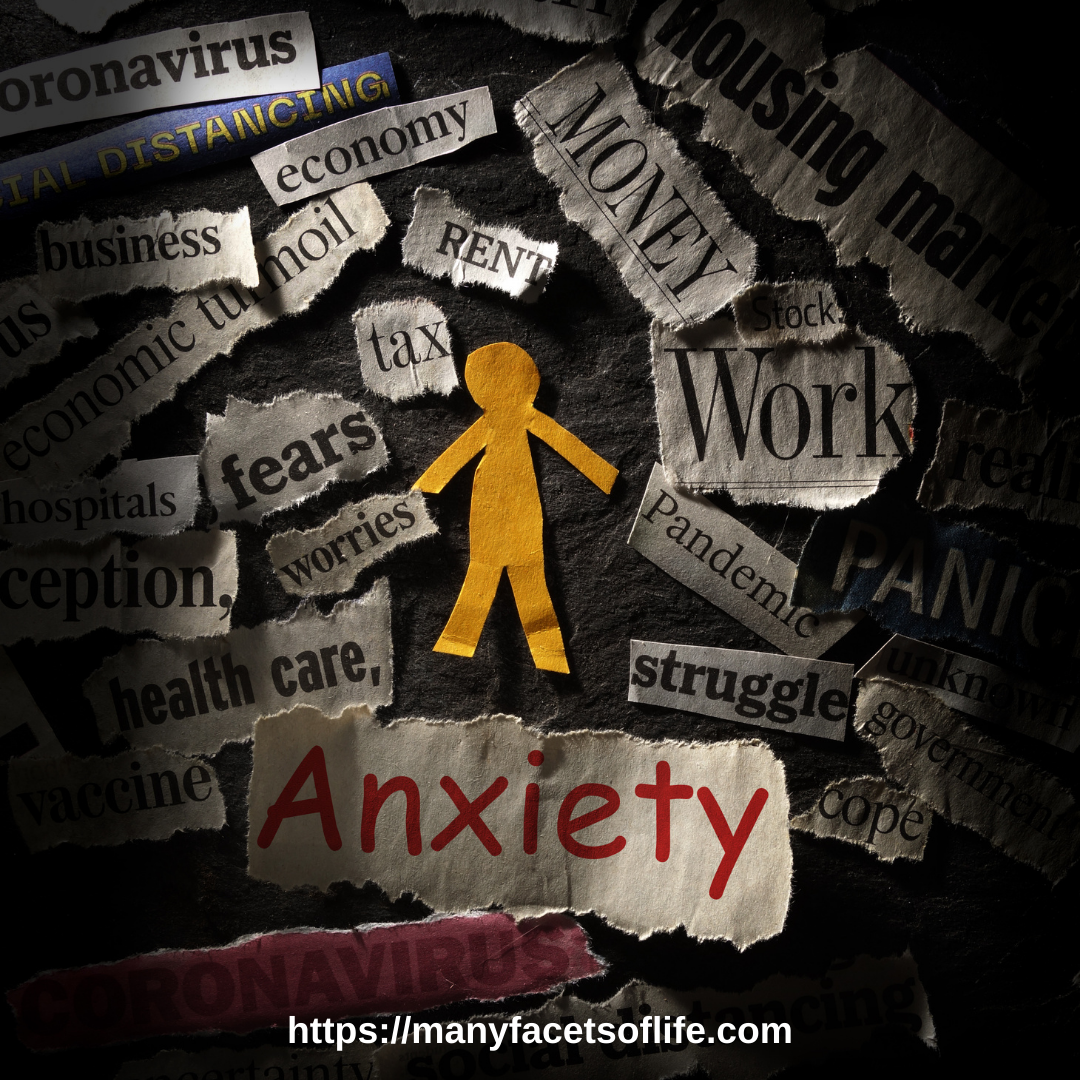

This is spot on. The early pandemic brought on a lot of anxiety for me, especially with my high school kids being out of school and having to take advanced classes remotely. It didn’t go well. Walking saved me, lots of long walks listening to positive podcats. I wish I would’ve had this full list of ideas then!
Thank you for your comment, Lara! I am glad this list was helpful for you and can continue to help you when something triggers your anxiety in the future. Walking saved me too and doing yard work.
Anxiety can be crippling without proper coping mechanisms. Thanks for these helpful tips!
Thank you, Lyssa, for your comment! Yes, people with anxiety need to find the proper coping mechanisms, and not be afraid to ask for help!
There is so much amazing info in this post! I have been working on using exercise and self-care to help with my anxiety and it has been hard but feels so good. I especially like the start small idea and doing self care with a friend as some accountability. Great post!
Thank you for your comment, Kaybee! I am glad that you liked the post, and that you found useful tips on dealing with your anxiety. With the pandemic so MANY people are dealing with anxiety and how to manage it.
Super helpful post, thank you!
Jenny, I am glad you find this post helpful and have ways to manage your anxiety!